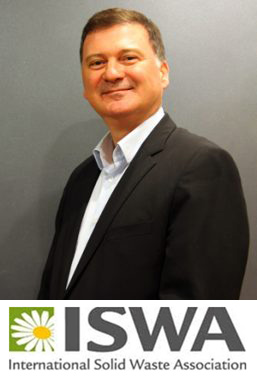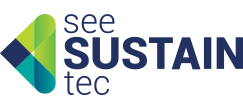Interview with professor Dr. Goran Vujić, ISWA board member for the Regional Development Network covering the Southeast Europe, Middle East and Mediterranean Region, on the occasion of the continuation of the partnership between ISWA & seeSUSTAINtec 2020

Dear prof. Vujić, could you present in brief the main targets and activities of the ISWA Regional Development Network SEMEM?
The recent changes of the ISWA Statute and Internal Regulations enabled more dynamic and transparent work in all segments of ISWA. This motivated national members from South East Europe (SEE) to launch the Regional Chapter SEE+ which includes SEE and neighboring countries. The Regional Chapter is a form of association, that will enable stronger linkages of coordination and cooperation between national members. This Chapter will allow countries that have very similar problems and challenges to stimulate the exchange of knowledge and experiences, helping them in facing the on-going waste management challenges faster and easier, and finding the right solutions.
We know very well that we have a lot to learn from international cooperation. We are sure that close relationships between the different Regional Chapters represent a significant opportunity, and therefore SEE+ eagerly awaits the launch of the Regional Chapter of the Arab countries. The contacts with the Regional Chapters in South America and Asia have already been established. The National member associations from Hungary, Romania, Slovenia, Croatia, Serbia, Northern Macedonia, Israel and Turkey have already initiated the Regional chapter, and Greece and Moldova are expected to join soon. During seeSUSTAINtec in Sofia we will have very dynamic meetings, with the goal to form ISWA national member in Bulgaria.
What are the challenges that still need to be overcome in the countries from the SEE Region and what are the main achievements in the waste and recycling sector?
The main common challenge for all SEE countries is to achieve EU waste targets and implement relevant action plans. The implementation of circular economy principles and the fight against global warming are top priorities. One thing we have experienced during the last 20 years is that in many cases the solutions used effectively in developed countries are brought to developing countries, without any adaptation and sometimes ignoring the local context. However, these solutions are often not sustainable and cannot be just copied and pasted to developing or transition countries. It is important that appropriate solutions are developed and implemented in developing countries, according to their cultural, economic and administrative context, and this is why the mutual cooperation on a regional scale is necessary.
As an executive director of the Serbian Waste Management Association, please let us know about the progress on these sectors in your country.
Serbian solid waste management system is very similar to all SEE countries. Most of the generated solid waste is landfilled, with only a small percent being recycled. However, large-scale investments have initiated in Serbia’s most populated cities. Company SUEZ has invested in Belgrade Incinerator, and EU grant will help Novi Sad and Nis to improve their waste management system.
Serbia in near future will have a lot of investments in the solid waste sector. Very important is to mention that EPR system for packaging waste is in place, and recycling of tyres and electronic waste has proven to be quite successful. Any opportunities for cooperation and exchange of experience between Serbia and Bulgaria, as well as other SEE countries should be utilized in order to make more significant progress in this growing sector for our region.
In what do you find the usefulness of partnering with the upcoming seeSUSTAINtec in April 2020 in Sofia?
Promoting SEE and ISWA action and finding partner who will be presenting Bulgaria in ISWA as the national member is the main goal of our collaboration.
Very important is to mention some ISWA activities which are also relevant for Bulgaria. All ISWA actions to support the circular economy and the fight against global warming are of great importance to our region, and they will significantly help in finding appropriate solutions for our countries.
In addition, ISWA’s #closedumpsites campaign and the work on closing the dumpsites and reducing their vast health and environmental impacts are very important and crucial for our region, and significantly help to problem solving.
A good example of partnering within the Regional Chapter concerns the ISWA Scientific and Technical Committee new initiative on the assessment of cytotoxic (genotoxic) waste in Western Balkan countries (Republic of Serbia, Bosnia and Herzegovina, Macedonia, Montenegro, Albania, Kosovo*). The main objective of this Project is to analyze the generation of cytotoxic (genotoxic) waste in the region, the levels of management and current treatment methods, and identify the potential areas for improvement. This analysis could be used for further development of national/regional strategies for managing this waste stream.






